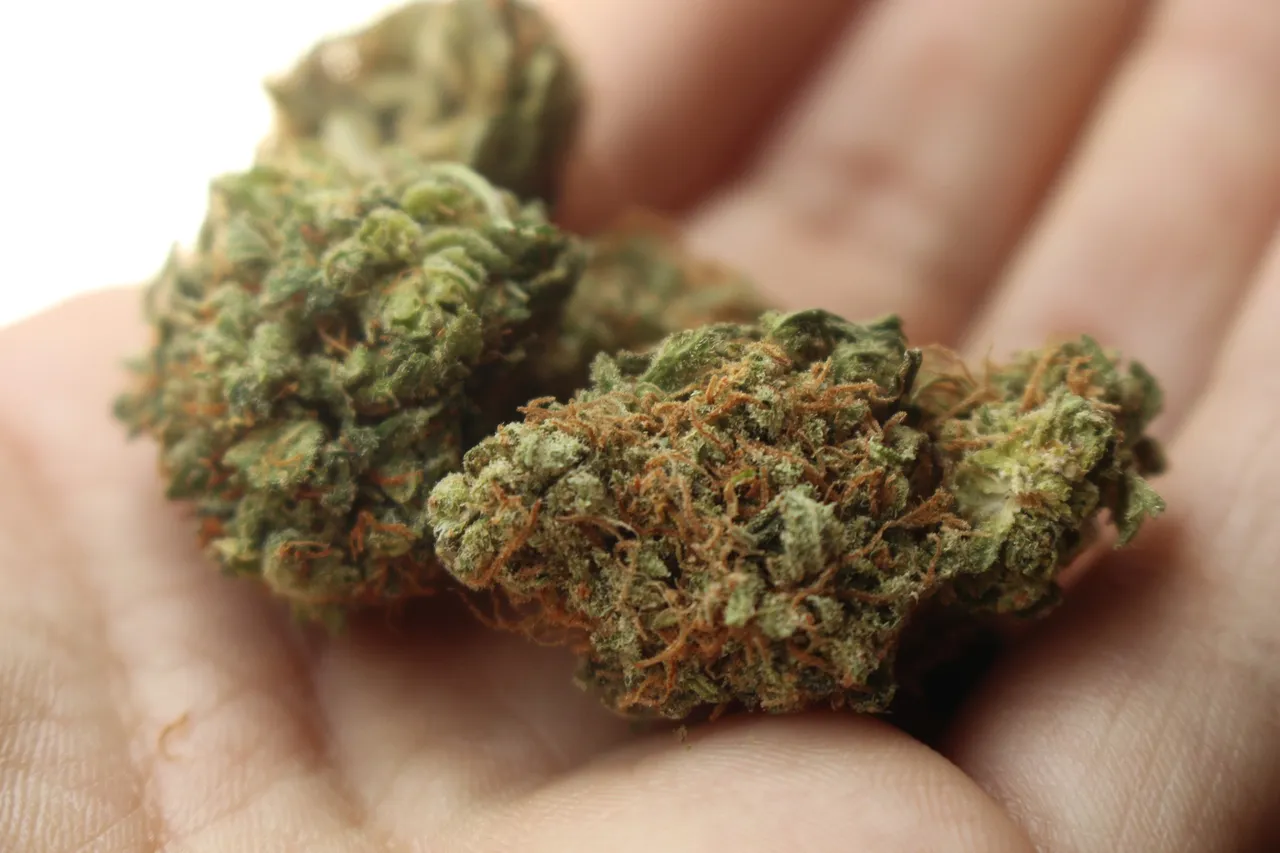Every Tuesday I am going to address one specific myth, urban legend, conspiracy theory or piece of pseudo-science. This time we are getting stoned. Not literally, of course. We just take a closer look at the idea of cannabis curing cancer.
Stoned
As some of you guys may already know, I had my fair share of experiences with various kinds of drugs in my life. Among these was cannabis as well – which, for me, was actually quite underwhelming, since I felt no difference at all. My brain is probably strange, and my cannabinoid receptors are not working properly. Who knows.
But let’s talk less about me but more about the idea of this week’s main idea: the belief that cannabis is quite helpful in battling cancer. Or even curing it.
Every time you read something, which sounds too good to be true – it is probably not. Or at least not as fancy as you wish it to be.
During the last years, I have read a couple of stories(1) about cannabis curing cancer and a friend even told me about her mother, who tried to fight her cancer with it. Sadly, with no success in the end. This might even be the best reminder for all of us, that behind all these stories which make cannabis responsible for a sudden cure, there is probably another explanation for the increased well-being of former patients. Anecdotal evidence is far from being a proof for anything.
It is, of course, absolutely understandable to try as many possible cures, if the only alternative is death. Last week, I discussed a harmful drug which was sold as being the cure for nearly every deadly disease.
Dear readers and fellow stoners, I can at least ease your mind a bit right from the start: the usage of cannabis is not as harmful as the consumption of chlorine dioxide. It may even have some therapeutic benefits. But let’s dig deeper into the science behind cannabis and cancer.
The Cure Called “Maybe”
When you start to look into possible connections of cancer treatment with cannabis, you will most likely stumble across one name a couple of times: Dr. Christina Sanchez, a Spanish molecular biologist, who has been working on the therapeutic effects of cannabinoids for several years.
In 2010, she and her co-scientists published a study regarding the possible breast cancer killing potential of cannabinoids(2).
To no surprise, several websites dedicated to the promotion of the benefits of cannabis picked this study to make a strong case for their efforts(1)(3). So, what was all the fuss about?
The study of Sanchez and her colleagues concluded:
In summary, our results, which were obtained in a clinically relevant animal model of ErbB2-positive breast cancer, suggest that these highly aggressive and low responsive tumors could be efficiently treated with non-psychoactive CB2-selective agonists without affecting the surrounding healthy tissue.
Sounds pretty amazing, right? So, where’s the catch?
Although it appears to be the case, that we just found an efficient way of treatment for breast cancer, one should tread carefully. The study was conducted using lab animals (mice, in this case) and although the findings are important, it’s still a bit far fetched to draw conclusions for human treatment (as some dubious websites did). And it definitely didn’t help that Sanchez gave an interview to a website which sells health supplements and oils.
Making this differentiation is quite important. There are indeed quite a lot of studies (in vitro and in vivo (but mainly lab animals)), which show quite promising findings regarding the potential of cannabinoids in cancer treatment(4). Just to give you a short example:
- McKallip et al. (2002)(5) were able to show some promising findings regarding cannabinoid usage and leukaemia
- Ramer et al. (2010)(6) demonstrated a decline of metastases in mice infected with lung cancer after cannabinoid treatment.
- Aviello et al. (2012)(7) provided evidence for tumour reduction after they used cannabinoids on mice suffering from colon cancer.
The research regarding the effects of cannabis is still going on. So far, most of the research lacks human trials. People who tell you, there is a cure for cancer, you just have to use concentrated cannabis extracts or oils are probably lying or don’t know, what they are talking about. So far, there is still no solid evidence for the claims of curing cancer in humans as Guzman and Abrams argue(8). This confirms the findings of Romano and Hazekamp(9) who already stated in 2013, that the cannabis oils one can buy for self-medication are of no use. If cannabinoids are used in the future to treat cancer, than they will be especially produced for a clinical purpose to control the desired effects even better. IF.
It’s still unsure, whether this will ever be the case.
So, to keep it short and simple, here are your key take-aways:
Nearly all of the relevant research has been done in a lab using animals like mice and rats or even only in vitro cancer cells. There are some findings, which indicate beneficial therapeutic possibilities.
For example, preventing cancer cells to divide, decreasing metastasizing or even killing cancer cells(10).
But it’s still not clear, how the exact mechanisms can be replicated in human trials and used in effective cancer treatments in humans. Yes, the research may lead at some point to something which justifies the headline Cannabis Cures Cancer, but until now we are still quite far away from that point.
Understanding Science
Abraham Lincoln once said:
Don’t believe everything you read on the Internet. Some people may lie to you.
The same holds true with this topic. Maybe you thought after reading the headline of this article, that I am completely going to discredit all the research about cannabis and potential beneficial claims.
This is not, what this series is about. For me it is important to show you, how difficult scientific research and the development for new treatments can be. That it is important to know the difference about various ways to conduct research and that only because something works in mice, doesn’t mean, you can replicate it for humans as well.
I want to encourage my readers to be sceptical about news headlines regarding scientific breakthroughs. Either ask people who have the expertise or read the research behind the claims.
As soon as you start thinking “Wait, what?” – it’s probably better to check other sources.
Maybe one day cannabis can cure cancer, we just don’t know it yet.
Until then, you are going to need another justification for getting stoned. Cancer prophylaxis will not do the trick anymore.
#sorrynotsorry
Feel always free to discuss my ideas and share your own thoughts about the things I’m writing about. Nobody is omniscient and if we all walk away a bit smarter than before, we’ll have achieved a lot.
Thanks for reading and stay healthy.

Make sure, to check out #steemstem for more science related content.
References
(1) https://thetruthaboutcancer.com/cannabis-and-cancer/
(2) Caffarel, M. M., Andradas, C., Mira, E., Pérez-Gómez, E., Cerutti, C., Moreno-Bueno, G., Sánchez, C. (2010). Cannabinoids reduce ErbB2-driven breast cancer progression through Akt inhibition. Molecular Cancer, 9, 196. http://doi.org/10.1186/1476-4598-9-196
(3) https://herb.co/marijuana/news/scotland-legalizing-medical-cannabis
(4) Paola Massi, Marta Solinas, Valentina Cinquina, Daniela Parolaro. Cannabidiol as potential
anticancer drug. 2012. British Journal of Clinical Pharmacology. 75:2 / 303–312 / 303
(5) McKallip RJ, Lombard C, Fisher M,Martin BR, Ryu S, Grant S, Nagarkatti PS, Nagarkatti M. Targeting CB2 cannabinoid receptors as a novel therapy to treat malignant lymphoblastic disease. Blood 2002; 100: 627–34.
(6) Ramer R, Rohde A,Merkord J, Rohde H, Hinz B. Decrease of plasminogen activator inhibitor-1 may contribute to the anti-invasive action of cannabidiol on human lung cancer cells. Pharm Res 2010; 27: 2162–74.
(7) Aviello G, Romano B, Borrelli F, Capasso R, Gallo L, Piscitelli F, Di Marzo V, Izzo AA. Chemopreventive effect of the non-psychotropic phytocannabinoid cannabidiol on experimental colon cancer. J Mol Med (Berl) 2012. DOI: 10.1007/s000109-011-0856-x.
(8) Abrams, Donald; Guzman, Manuel. Cannabis in Cancer Care. 2015. Cannabinoids. Volume 97, Issue 6. 575-586
(9) Romano, Luigi; Hazekamp, Arno. Cannabis Oil: chemical evaluation of an upcoming cannabis-based medicine. Cannabinoids 2013;1(1):1-11
(10)Guzman, Manuel. Do Cannabinoids Cure Cancer?. TreatingYourself. Issue 39, 2013
Random Science
Your Weight is not Your Destiny
Random Thoughts
Psychology of Morality
Debunk-Tuesday
Fiction


